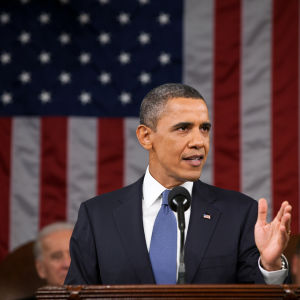Former President Barack Obama did a lot to change labor policy, but staunch critics of Obama’s policies see renewed hope as two critical federal positions have been filled.
The Department of Labor (DOL) and National Labor Relations Board (NLRB) played a major role in changing workforce rules during the last administration. President Donald Trump continued his fight against those reforms by filling two critical positions at both agencies last week.
The Senate narrowly voted along party lines to confirm John Ring to the NLRB. Patrick Pizzella was also confirmed to serve as deputy secretary of labor for the DOL. Those opposed to the reforms pursued during the last administration applauded both confirmations.
“The U.S. Chamber is pleased the Senate is finally moving to confirm critical positions dealing with labor and workplace issues,” Glenn Spencer, the senior vice president of the U.S. Chamber of Commerce’s Employment Policy Division, said in a statement provided to InsideSources. “The legacy of the Obama-era Board still burdens employers with decisions and regulations that unfairly tilt the playing field. America’s employers need relief from these policies to continue growing jobs and the economy.”
The Obama administration tackled issues including union elections, independent contracting, franchising, overtime, and safety standards. The Competitive Enterprise Institute (CEI), a free-market think tank, has been a fierce critic of those reforms but sees hope in the new deputy secretary of labor.
“Deputy secretary is a crucial position in running the department, and filling that vacancy will enable Department of Labor to better address urgent labor policy issues,” CEI labor policy expert Trey Kovacs said in a statement. “Patrick Pizzella brings a wealth of experience, previously serving on the Federal Labor Relations Authority and at the DOL itself, that will enable him to hit the ground running as new deputy secretary at Labor.”
The Obama administration pursued labor reforms with the promise of helping workers. It encouraged unionization and imposed stricter rules to protect workers against abusive employers. Democratic Sen. Elizabeth Warren expressed concern over the direction the new administration is taking, arguing that it will hurt workers.
“These two nominees have been selected to hold critical jobs to protect workers. That’s what these jobs are about,” Warren said April 10. “President Trump talked a big game during his campaign about fighting for workers, but after a year of corporate tax cuts and rolling back common-sense protections for workplace safety, retirement security, and more, we know that those promises have turned out not to be worth much of anything.”
Trump has taken a vastly different approach while still focusing on helping workers. He has looked towards tax reform and deregulation to lessen the burden job creators face in the hopes they’ll spend more time and money growing their business and investing back into their employees.
The business community was at the forefront of the fight against the Obama-era workforce reforms. Industry groups have filed lawsuits, testified before lawmakers, released research, and joined forces against the changes – which they see as an overreach of federal powers that helped unions at the expense of workers.
“John Ring’s appointment to the National Labor Relations Board is a win for America’s restaurants and their employees,” National Restaurant Association executive vice president Cicely Simpson said in a statement provided to InsideSources. “The National Restaurant Association applauds Majority Leader McConnell’s commitment to moving this nomination through the Senate in a timely manner so Mr. Ring can begin addressing the important issues before the NLRB.”
CEI has argued that the Obama-era policies hinder companies to such an extent that it was negatively impacting workers. The NLRB seemed to be on course to reverse the reforms it previously enacted when the new administration came in. But unexpected setbacks have stalled those efforts.
“John Ring’s Senate confirmation to the National Labor Relations Board should make a big difference in the board’s ability to restore balance and stability to labor-management relations nationwide,” Trey Kovacs said. “With the complete, five-member NLRB finally back to full strength, it can get to work rolling back a spate of recent decisions that destroyed jobs and weakened worker freedom, such as the ruling on joint employer liability that now threatens so many small businesses, contractors, and franchise entrepreneurs.”
Ring being confirmed to serve on the labor board tilts the agency back in favor of the president. Former President Barack Obama still has two of his picks serving since they have staggered five-year terms. Former NLRB Chairman Philip Miscimarra split the five-member board evenly after stepping down in December.
President Trump did manage to gain a majority vote on the board for a short time after a confirmation vote Sept. 25. His general counsel, a critical position that decides which cases the board will review, wasn’t confirmed until a few weeks later. But the board did do a lot in those weeks before it was split again in December.
The NLRB decision to rollback an updated version of the joint-employer standard became one of the more critical in those fleeting weeks. It was able to rollback the policy when ruling in a case involving Hy-Brand Industrial Contractors. But it later decided to vacate that decision Feb. 26 over a possible conflict of interest involving board member William Emanuel.
Republicans and the business community expressed particular concern over the updated standard because it is potentially far-reaching. The update made it easier for employers to be held liable for the workers of a company they contract with. But many companies rely on contracting with critics warning the update went way too far.

